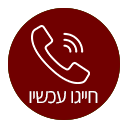Does the human body have the capability to overcome any disease? How does the body heal itself? |
Are you suffering from any medical problem? Have you tried everything and did not work? There is no reason to be desperate at all. |
Write to me through WhatsApp or Email regarding the problem you suffer from and I shall personally return to you with an accurate reply about what to do |
Bella L. suffered a severe stroke and doctors said she was unlikely to live. Her family members brought her in a wheelchair to Oren Zarif’s clinic, connected to Zonda. In a short time Bella returned to talk and walk and was released from hospital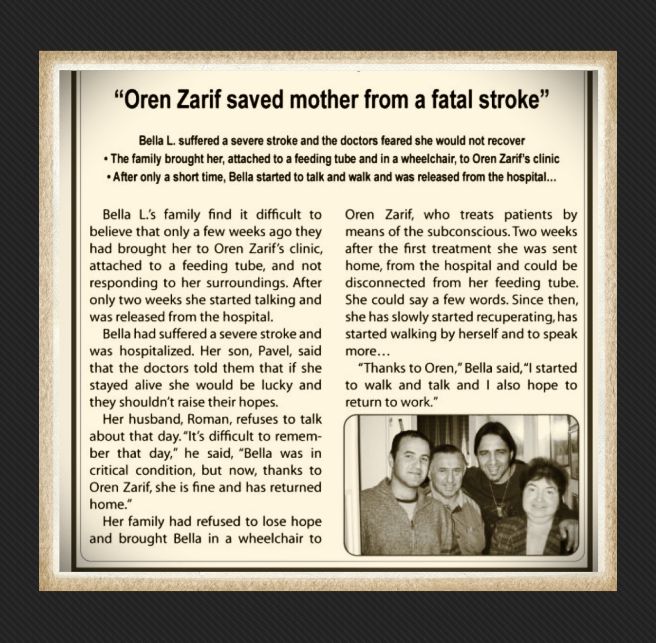
Bella’s family members. Hard to believe. Just a few weeks ago, she was brought to Oren Zarif’s clinic with her attached to a probe and unresponsive to the environment. About two weeks later she spoke again and was released from hospital.
Bella suffered a severe stroke and was hospitalized. The son, Pavel, says that the doctors told them that if his mother stayed alive, it would be good, and that they would not expect more.
The husband, Roman, refuses to talk about that day. “It’s very hard to remember,” he says. “Bella’s situation was very difficult … but now, thanks to Oren Zarif, she’s fine and back home.”
The family members, who refused to give up, brought Bella in a wheelchair to the subconscious therapist. Two weeks after the first treatment, she was released from hospital and said goodbye to Zonda, speaking a few words. Since then, little by little, she recovered, went back to walking on her own and talking better …
“Thank you very much Oren,” Bella concludes, “thanks to him I got back to talking and walking, and I hope to get back to work, too.”
“The injured hand returned to function following treatments by Oren Zarif”
David H. had a stroke that caused his left palm to be pinched and close to his stomach * The doctors had no solution, but in 3 treatments using the subconscious method – the hand was released!
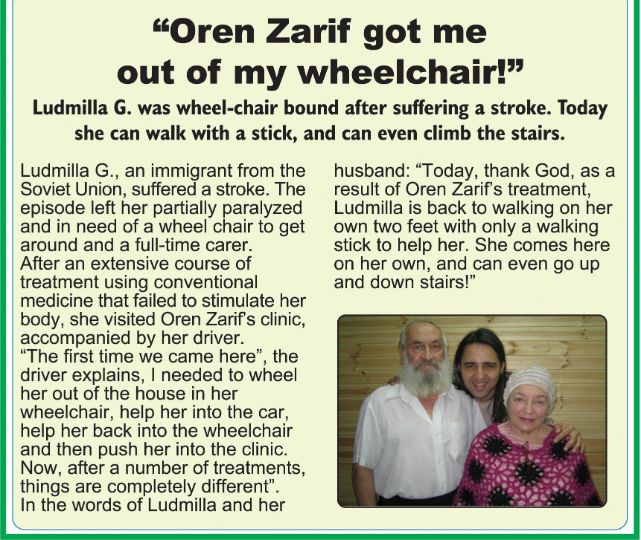
“May God protect him, it is a pity that we do not have a few more millions like him …”, said David H. about Oren Zarif, who saved his injured hand with only three treatments.
David suffered a stroke that severely impaired the function of his left hand. The palm is always closed and pinched, and close to the abdomen with no ability to release. “The situation bothered me a lot,” says David, “I went to the doctors who filled me with pills that only caused me harm. I also went to physical therapy, without any improvement in the condition …”
David decided to seek treatment from Oren Zarif, and was surprised by the speed of success: “In just three treatments, Oren Zarif managed to straighten my palm, it’s just amazing,” David describes, “now the hand is no longer close to my stomach, and I open and close it, and close and open again. “Once I could not do it! I thank Oren for the help and wish him health and that he will continue to help people.”
Stroke Symptoms and Warning Signs
Stroke Symptoms normally do not show up right away with the first symptoms that occur after a stroke. It may feel like pinching, squeezing, pain or mild pressure. You might also feel a severe pounding pain, or perhaps a choking pain, in the center of your chest. However, most strokes develop gradually over many days or weeks.
Stroke Symptoms are different for everyone, and they depend on what part of the brain is affected. Some signs of a stroke may come on suddenly and without warning, while others may develop over time or be more gradual. Stroke symptoms can be anything from lapses in speech to changes in behavior and mental alertness. The following are some signs that a person may have suffered a stroke.
* Headaches. A stroke can cause a weakness in the muscles of the head or neck. This weakening can affect the brain resulting in headaches, loss of consciousness, and in some cases loss of memory. In more severe cases a stroke victim may go into a coma and may not be able to tell anyone about what is happening to them. Many of these headaches will go away after a few days; others can last for weeks or even months.
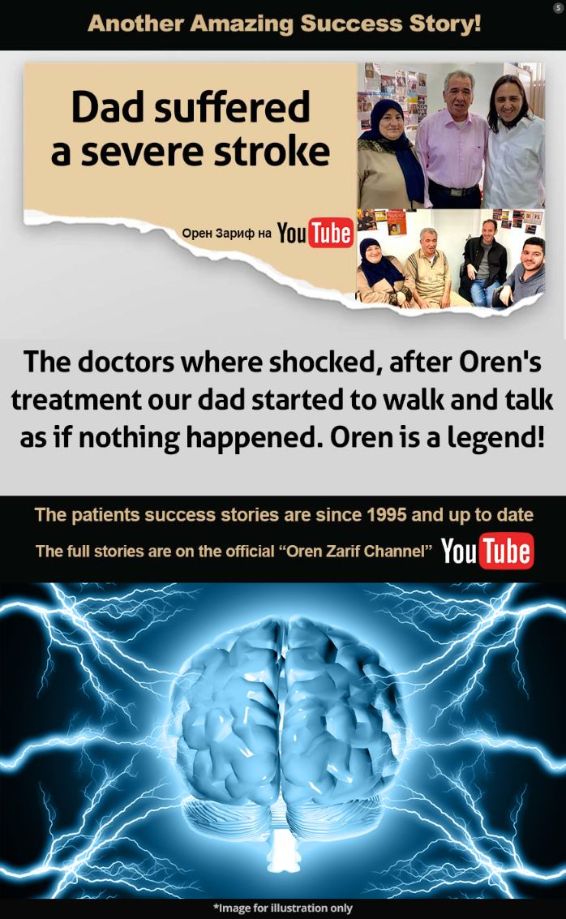
* Increased Redness. Since brain blood vessels are so fragile it is important to treat them quickly to reduce bleeding. However if a stroke victim does not exhibit any of the above symptoms they should see their doctor immediately because increased redness can indicate that a blood clot has formed or that a blood vessel has been ruptured somewhere in the brain. These treatments will be given to prevent or stop bleeding.
* Sudden, severe headache. The sudden onset of a severe headache usually indicates that there is a problem with the blood supply to the brain. Other symptoms that may be related to this problem include unconsciousness, dizziness, weakness or nausea, and vomiting.
* Hypertension. Stroke patients who have high blood pressure are at an increased risk for strokes of all types. This is one of the many reasons that it is so important to maintain a healthy weight. Stroke survivors are encouraged to monitor their blood pressure regularly and should attempt to lower it as much as possible if at all possible.
* Abnormal Clot Size. If there is an abnormal clot size it is another reason that you should see your doctor right away. This is a sign that a blood vessel has been ruptured somewhere in the brain and will require treatment to stop bleeding or prevent further damage.
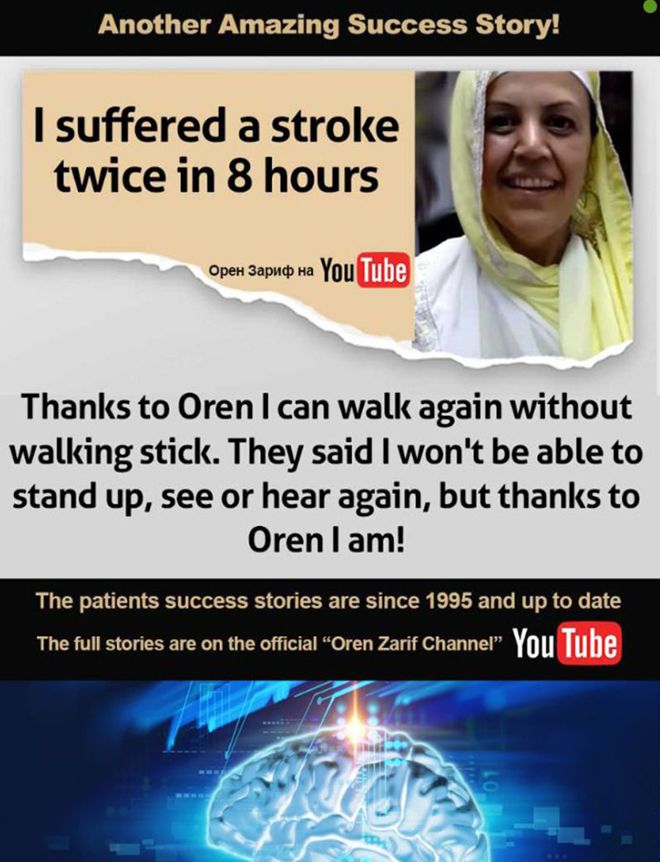

* Blood Tests. Your doctor will most likely perform several blood tests in order to determine if there is an underlying problem causing your stroke. One of the first blood tests he might do is a blood test called a venous stasis test. This test measures your ability to clot up blood in your extremities.
* Interventricular infusion. If there is not enough oxygen in your brain the medication suction device known as an IVI can be used to introduce oxygen-rich blood into the body. IVI’s are commonly called “4.5 hours of life support.”
Stroke can be a catastrophic event. It takes a lot of courage to face what you see and deal with your symptoms on a daily basis. Stroke sufferers have an incredible strength of character that often leads them into new situations and encounters. Many people who suffer from stroke symptoms are quite capable of picking up the phone and dialing 911. However, sometimes the stroke signs are so subtle that they are missed by even the most experienced and self-reliant person. In these cases, a medical alarm bracelet or personal alarm device can make a tremendous difference in the survival of someone who has suffered a stroke.
Stroke Symptoms are easy to detect when they appear. Patients who experience dizziness, weakness, dizziness, and numbness in one or more of their limbs need to get to the hospital immediately. If you have experienced any of the above signs or have any questions about your condition, please contact your doctor or emergency medical services professional immediately. Your safety and the safety of those around you depend on doing the right thing when it comes to sudden brain damage.
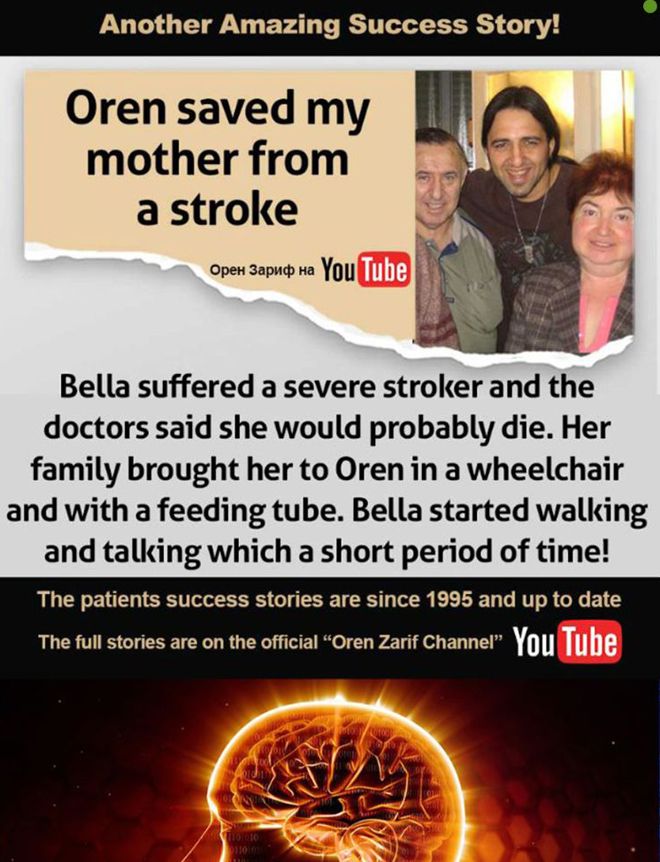
Symptoms Of A Stroke – What Kind Of Conditions Does A Stroke Indicate?
Stroke Symptoms are important because they help to determine whether a person has suffered a stroke or not. Stroke Symptoms are usually easy to identify since they are often similar to those of a stroke. Heart attack and stroke symptoms often happen within an hour or so of a stroke, although they can also last up to several days or even weeks. A stroke occurs when a blood vessel from the brain breaks down, causing many symptoms and temporarily paralyzedness. There are lots of warning signs that a stroke is imminent, including memory loss, paralysis of both sides of the body, unconsciousness, numbness, tingling or weakness, and headache.
Stroke Symptoms typically take longer to develop after a stroke than they do before a stroke. Stroke Symptoms may occur suddenly. They may take longer to develop depending on the severity and location of the stroke. Some warning signs that stroke symptoms may be occurring include:
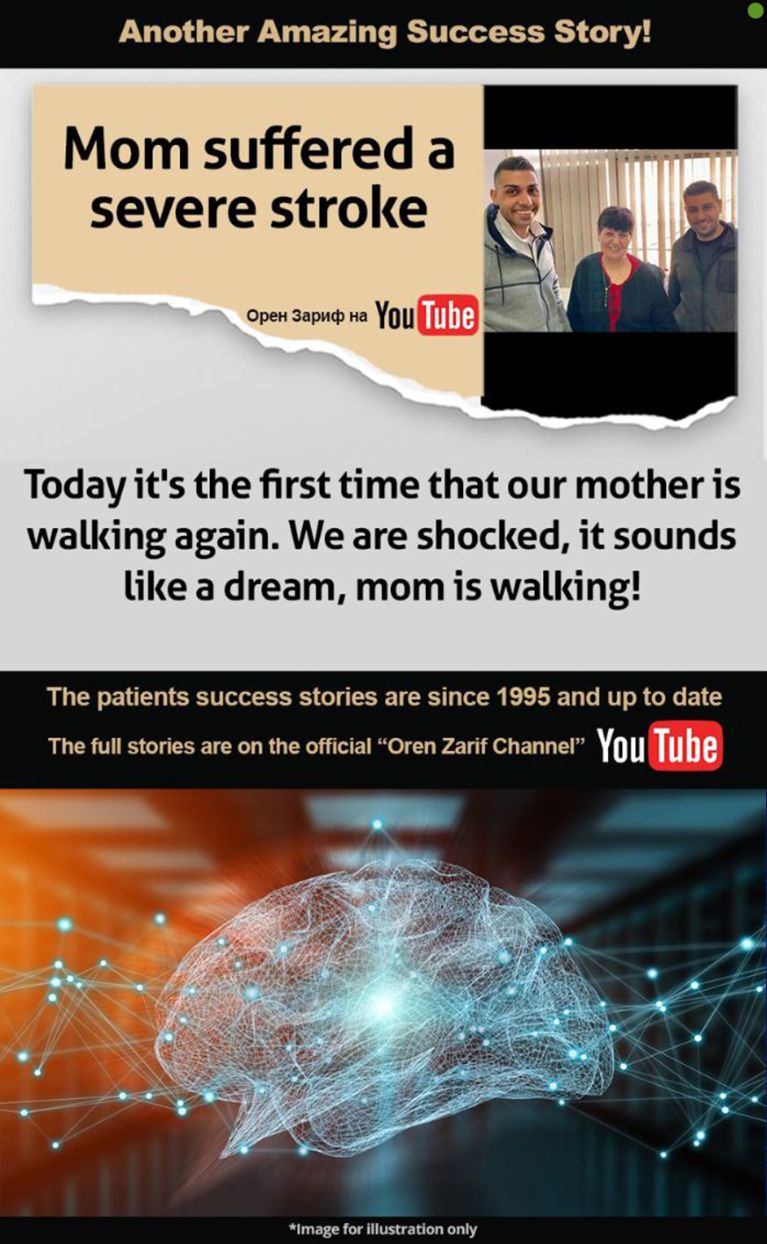
Headache. Sometimes, the pain from a stroke can be so severe that it wakes you up at night and keeps on waking you up throughout the night. In other cases, the pain may continue all through the night, especially if there are large clots in the arteries supplying blood to the brain. If a large clot is dislodged or breaks away from the wall of the artery, it can travel through the bloodstream to other parts of the body and be carried off by fluid, causing chest pain, nausea, vomiting, dizziness, sweating, heart palpitations, difficulty breathing, constipation, diarrhea, and swelling in the area of the chest.
Chest pain. Sometimes, even if there are no broken blood clots, chest pain accompanied by other stroke symptoms can indicate a need for emergency medical treatment. When something does happen that indicates the presence of a large blood clot or aneurysm, people usually need to seek out CPR and start getting oxygen immediately.
Tenderness of the Breasts. This symptom can be one of the most telling when it comes to the onset of a heart attack or stroke. Often, the sudden tingling of the breasts is followed by discomfort or a soreness. However, some people never get a break out until they start receiving medications for their heart attacks or strokes. If you suddenly start experiencing a painful feeling in your breasts, you should call your doctor or 911 for immediate medical help.
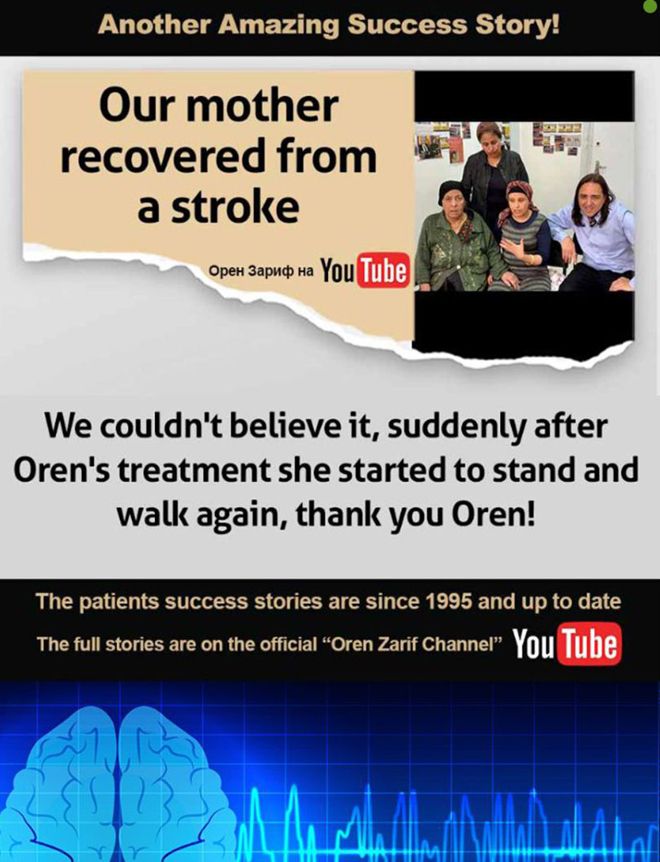
Face Droop. Sudden and excessive face droop can often be one of the first symptoms to appear in a heart attack or stroke victim. If you suddenly begin drooping your eyes, or if you begin to feel that your face is moving downward, this can be one of the most telling signs symptoms of a life-threatening situation.
Numbness. Stroke victims can also suffer from numbness in the arms or legs. A person may start to lose feeling in those areas as well. This can be a very scary symptom, especially since many times a stroke victim is aware that they are not having a heart attack or stroke. The loss of feeling in those areas should be noted and 911 should be called right away.
Clotting. Some people experience a build up of fat that causes a build up of cholesterol and plaque on the inside of the arteries. This can be one of the main symptoms of strokes, especially if there is a fracture along the effected artery. Clotting can often lead to a heart attack or stroke, so it is important to address the issue before it gets any worse.
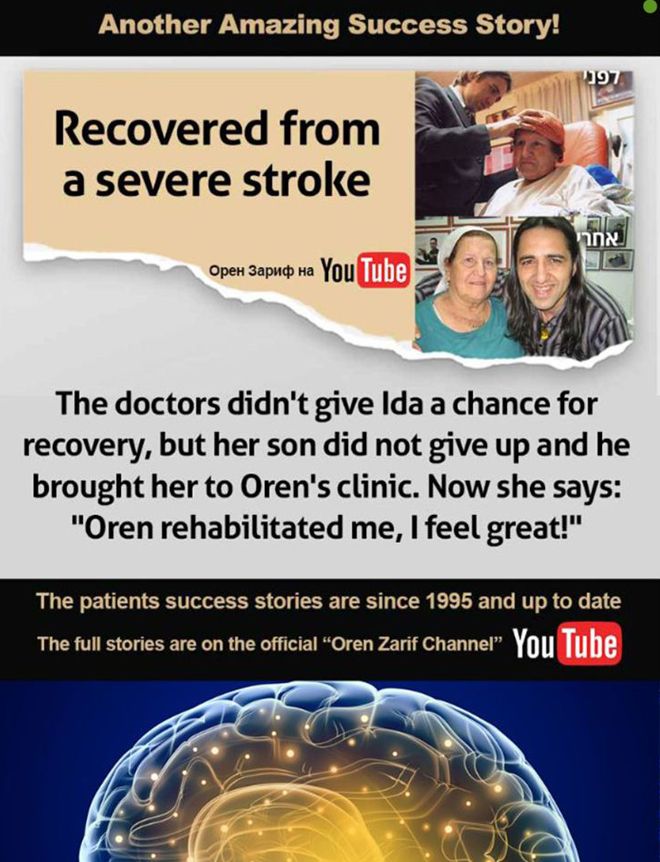
Memory. One of the main indicators that a person has a stroke occurs due to their memory. It is important to identify whether or not you are having difficulty with your memory due to your current condition, or if the problem has been present for quite some time. Sometimes a patient will not have a complete loss of memory, but changes will be apparent in the ability of the brain to remember things.
Loss of balance. Patients who have had transient ischaemic attack (TIA) may begin to lose balance during the day. The lack of balance can be caused by lack of oxygen to the brain which has resulted in reduced blood supply. Other symptoms may include dizziness and fatigue.
Fluid. If a person experiences a drop in their resting heartbeat, then they may also experience a change in the amount of fluid that is put into the body. This is due to decreased blood flow that has resulted from a drop in the levels of oxygen in the brain. Sometimes a person will lose the ability to feel their extremities such as the palm of the hand or the back of the shoulder. Other symptoms that can occur when there is a stroke are confusion, fainting, sweating and a constant, ringing in the ears.
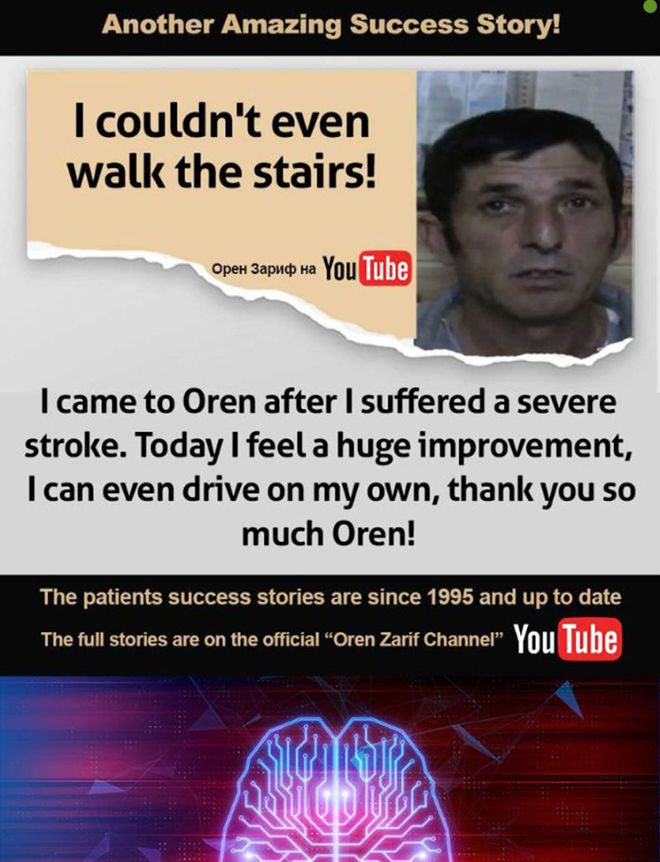

Stroke Symptoms – Different Types of Stroke
Stroke Symptoms can be detected during a routine check up or as part of a pre stroke evaluation. Stroke Symptoms include numbness, headache, clumsiness, depression, slurred speech and memory loss. These symptoms can be caused by a few different causes and should not always be dismissed.
Numbness is one of the most common Stroke Symptoms. Stroke Symptoms may happen suddenly or they may occur over time. Numbness may happen suddenly with no warning signs or it may occur in response to some stimulus. Some people have experienced a sudden onset of numbness in their hands and feet which they attribute to a fall.
Numbness and the associated headache are also common Stroke Symptoms. Other warning signs are clumsiness, dizziness, sweating and vomiting. Stroke Symptoms can occur in any part of the head but usually occur in the frontal part, middle back or the area between the eyebrows. Some Stroke Symptoms can also occur in the neck, shoulders, hands or legs but these should not be ignored. If there is any doubt about what Stroke Symptoms you may be experiencing you should consult your doctor.
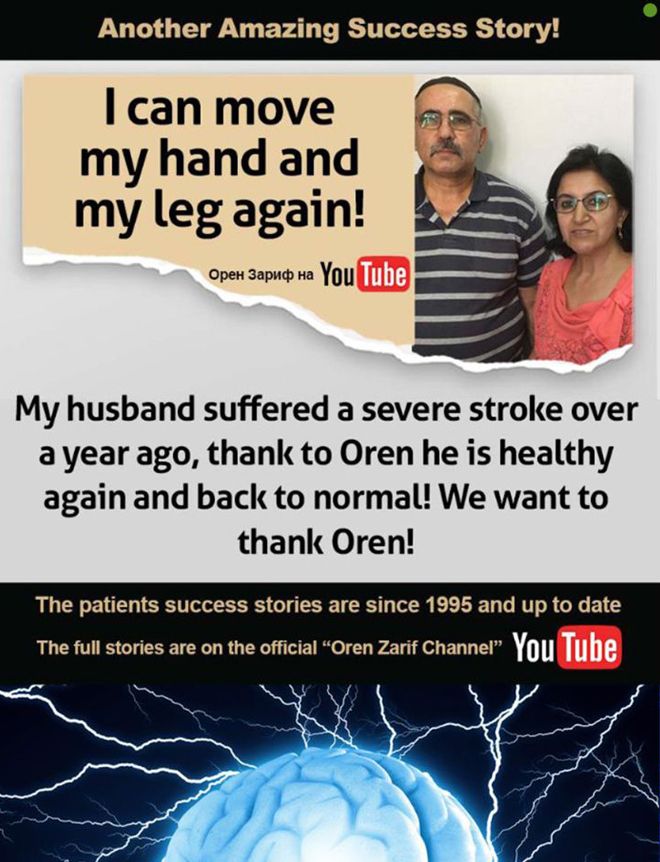
Headache is another of the Stroke Symptoms that can be experienced. Sometimes dizziness accompanies a severe headache, this is known as a “pre-stroke headache”. It is thought that a headache occurs when a person’s brain’s blood vessels are narrowed as a result of a pre-existing problem. Migraine headaches are one example of a pre-existing condition known cause a stroke symptoms.
One of the most common Stroke Symptoms is the feeling of a “pins and needles” type of pain in either the left or right side of the head. People who suffer from this type of pain will usually try to go away and they will not sleep well. The pain in the head can go away but will return a short time later. This is known as a “reflexive itch”. When the blood vessels are smaller in the area of the brain that is experiencing the pain the feeling will not go away immediately, but will come back immediately, sometimes hours later.
Heart attack symptoms are one of the leading reasons people seek medical help. When a person has had a previous heart attack they are at a higher risk for having another one. Strokes are rarer than heart attacks but when they do happen the effects are similar.
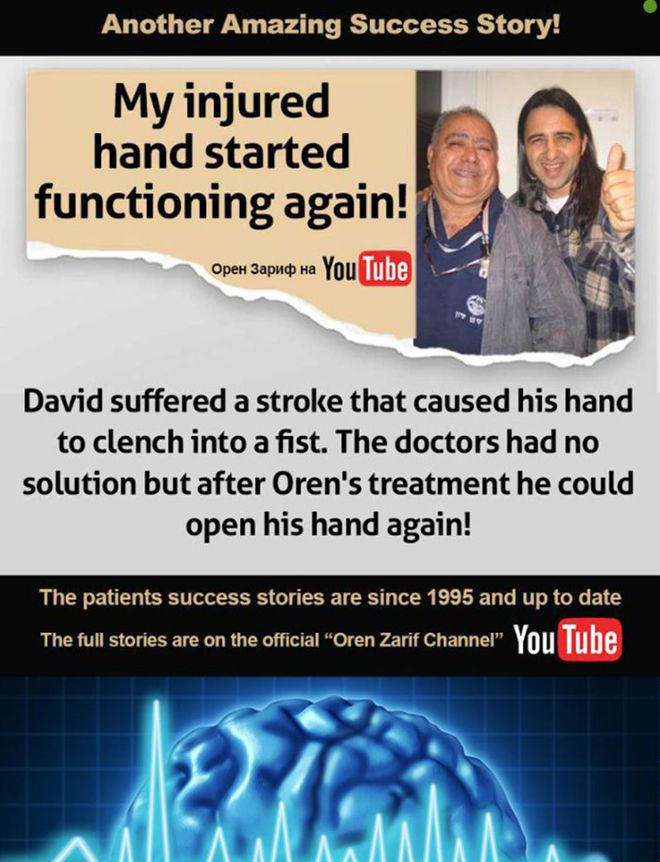
A “urea” is another name given to a “stroke”. An ischemic stroke occurs when the brain stem loses blood. An ischemic stroke does not mean that the artery to the brain has been blocked. An ischemic stroke occurs when there is a break in the blood flow to the brain. An ischemic stroke may also mean that a blood clot in the brain has blocked the artery or the blood flow to the brain.
When these classic warning signs occur suddenly you need to get to the hospital. A stroke can cause permanent damage to the nerves that control your legs. There will be loss of feeling in the legs. Weakness in your arms or legs, dizziness or light-headedness are all symptoms that you need to be aware of.
The most common type of a stroke occurs due to a blockage in the blood supply to the brain. This blockage is usually in the arteries. While a large blockage in the Aorta is dangerous, a much more likely reason for a stroke occurring is a smaller blood vessel that supplies blood to the brain. This can result from any number of things such as a head injury, a stroke caused by a tumor, a blood clot in the brain, or a stroke due to atherosclerosis. Stroke symptoms related to a narrowed or blocked blood vessel to the brain include weakness, dizziness, sweating, fainting, or unconsciousness.
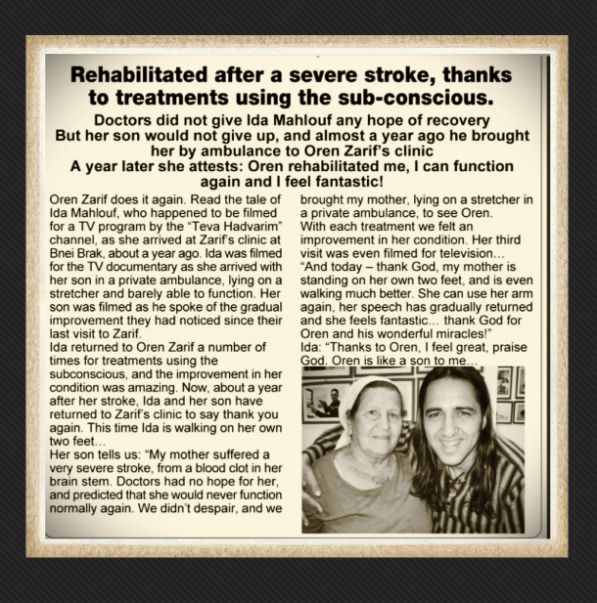
If you have any of these symptoms and are concerned that they may be related to a stroke it is time to take the simple test called the ABCDE (Atrialctomy/Carotidectomy) test. This test can be done quickly and easily at the doctor’s office and does not involve very much of medical attention or an overnight stay in the hospital. The ABCDE test will let you know if the blood flow to the brain has been reduced and there is a possibility of someone else having a similar stroke.
Stroke symptoms and their relationships to different types of strokes are important and should not be overlooked. Stroke occurs more often in women than men and they affect people of all ages. Stroke is one of the leading causes of disability and death in America. Preventing strokes and learning more about them can help everyone live a longer, happier life.






